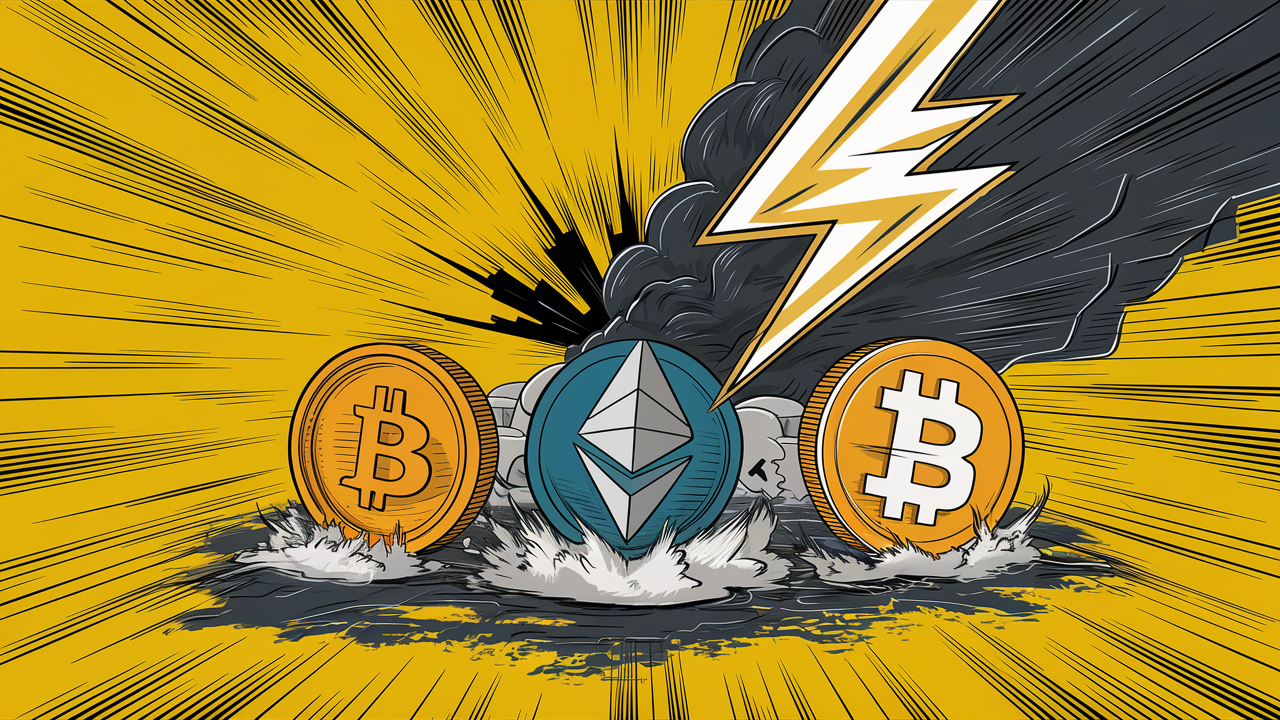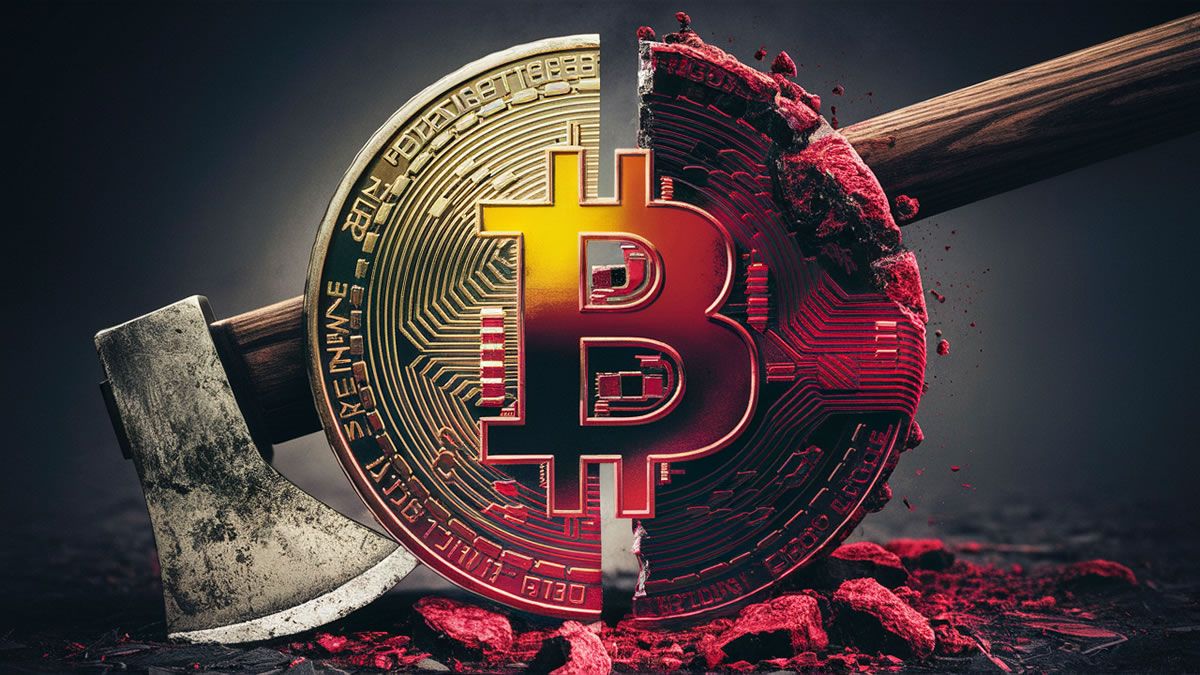The role of cryptocurrencies in the war between Russia and Ukraine
CryptoPress
*By Axel Becker.
The war between Russia and Ukraine is causing strong economic, political and social consequences. And in the midst of this confrontation, cryptocurrencies took center stage and showed the potential they have compared to traditional money systems.
In the weeks leading up to the Russian invasion, crypto was already on the agenda in both countries. At the beginning of February, the Russian authorities took a 180° turn in their position regarding these digital assets, and a project by the Ministry of Finance of that country, in which they seek to give legal status to cryptocurrencies, made headlines. For its part, Ukraine went a step further and on February 18 passed a law to legalize Bitcoin and other cryptocurrencies. It should be noted that the European country ranks fourth in the world in terms of crypto adoption (according to a Chainalysis report).
When Vladimir Putin confirmed the start of the invasion of Ukraine on February 24, the crypto market was negatively affected by the news, as were other investment instruments such as shares in the stock market. The price of Bitcoin fell to USD 34,000 (-15% on that day), but quickly rebounded and returned to the values where it had been consolidating. This market reaction showed the strength of cryptocurrencies to recover, even in the face of news of global impact.
Ukraine ranks fourth in the world in terms of crypto adoption.
On Thursday, February 24, the Central Bank of Ukraine issued a resolution to suspend the foreign exchange market and operations with electronic money and restricted the withdrawal of cash in local currency. This measure significantly increased crypto trade in that country, by offering financial freedom to move funds without restrictions.
Also, in order to receive financial support, the Ukrainian government began to accept donations in different cryptocurrencies. According to the data published by Elliptic, more than USD 70 million has already been raised through more than one hundred thousand transfers in Bitcoin, Ethereum, USDT, USDC, DOT, and other cryptos.
On the other hand, with the aim of sanctioning Russia for the invasion of Ukraine, the United States and the European Union decided to exclude Russian banks from the SWIFT network (platform for international banking transactions). In addition, they have frozen the international reserves of the Central Bank of Russia, causing a sharp drop in the value of its currency. Other measures have also been applied to block Russian economic activity, such as the prohibition of Russian commercial ships in some seaports, the disqualification of their delegations in sporting events, and the suspension of their operations in the country by large companies such as Apple, Audi, Coca-Cola, and IKEA.
The depreciation of the ruble has already exceeded 30% and has broken historic lows.
As a consequence of these measures, the depreciation of the ruble has already exceeded 30% and has broken historic lows. To avoid greater evils, the Kremlin prohibited the purchase of foreign currency and temporarily closed the financial markets in the country. This made many Russian citizens find in Bitcoin and other cryptocurrencies a way to protect value and the freedom to move their funds without restrictions. According to a Russian government report, there are already more than 12 million crypto wallets in the country and it is estimated that at least 12% of the population already owns some of these digital assets. “Trade between the Russian ruble and crypto-assets such as Bitcoin and Tether has doubled since the assault on Ukraine began, reaching $60 million a day,” British newspaper Financial Times reported.
In this sense, the Ukrainian government, backed by its allies, asked the main cryptocurrency platforms to abide by the financial blockade, avoiding transactions by people or entities involved in the war. However, spokespersons for the exchanges dismissed the request, claiming that if they block Russian citizens, they would be going against one of the principles of cryptocurrencies: the financial freedom to operate without restrictions.
In summary, regardless of how the price behaves in the coming weeks, society is realizing that, in certain situations, its money may lose value or even be blocked. Cryptocurrencies solve this problem (and others) of traditional financial systems, by giving people control of their own money. This makes clear the importance of crypto as resistance to censorship and as a store of value. That is why, regardless of the price, crypto adoption and technological developments continue to increase, demonstrating the enormous potential that they have.

* By Axel Becker – Content Manager, Decrypto.la.
© 2024 Cryptopress. For informational purposes only, not offered as advice of any kind.
Related
- Ukraine’s War: The fragility of fiat money in times of crisis Ukraine is embracing cryptocurrencies when the West is still trying to figure out what will happen next....
- How Will Sanctions Affect Russia, the World, and the Crypto Market? International sanctions are designed to hurt the country as a whole, innocent people are the most affected....
- Russians go to the United Arab Emirates to liquidate their Bitcoin In recent days, wealthy people with Russian origins have moved billions in Bitcoin to the United Arab Emirates (UAE)....
- Russia bans crypto; Bitcoin falls The Central Bank of the Russian Federation (CBRF) demanded on Thursday that cryptocurrency trading, mining, and usage be prohibited in the country because they pose a threat to the well-being and financial stability of the Russian people and the country’s...





